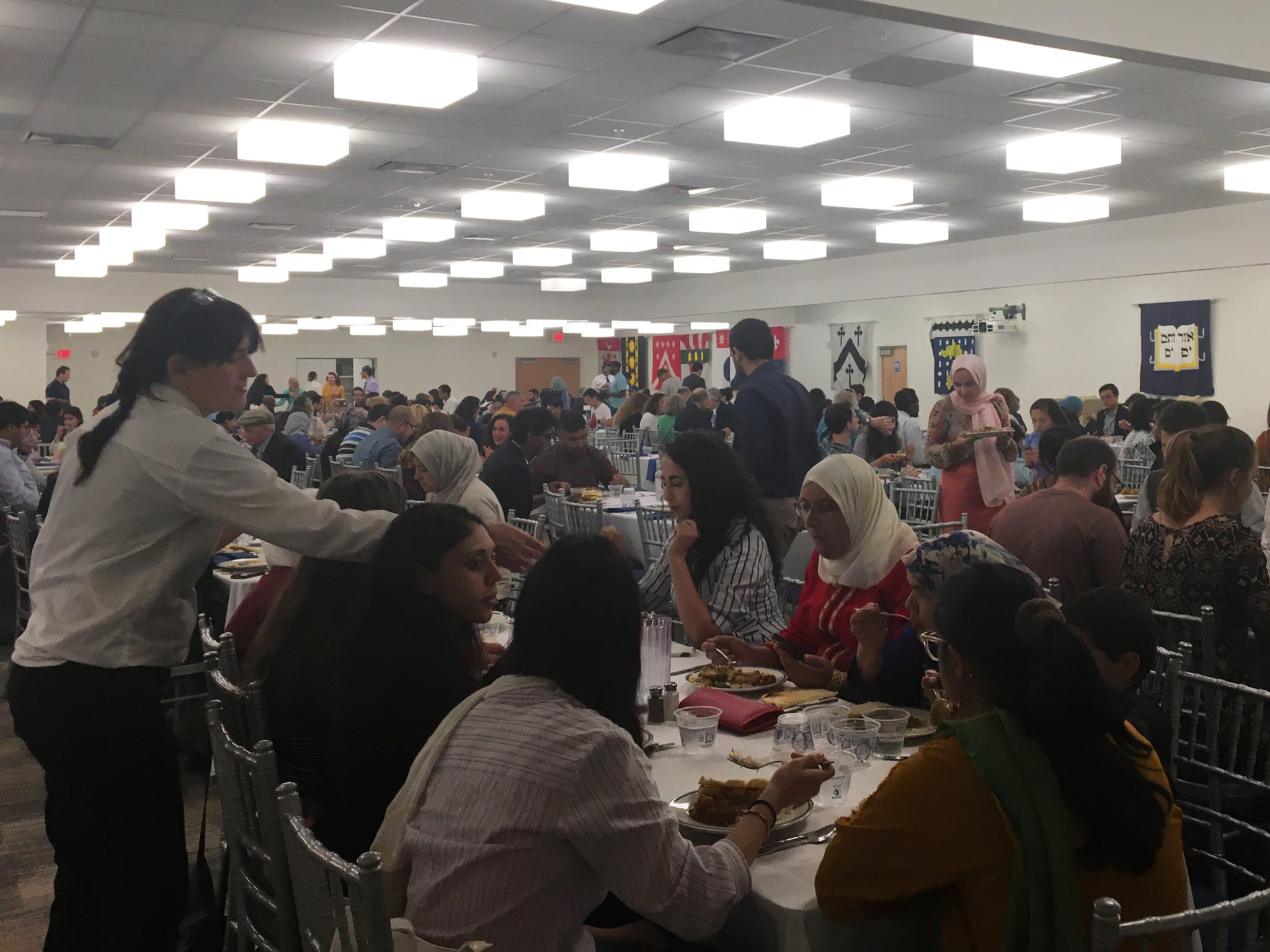
Helena Lyng-Olsen
Dressed to the nines and sporting smiles, nearly 200 attendees — including students, faculty members and their families — filed into Yale on York to attend the 12th annual Fall Muslim Life Banquet on Wednesday.
Guests listened to speeches, ate a halal dinner catered by Yale Dining and celebrated the beginning of the academic year for two hours on Wednesday evening. The night featured a suite of speakers — including a senior undergraduate from the Muslim Students Association, director of Muslim Life at the Chaplain’s Office Omer Bajwa, Yale College Dean Marvin Chun and a keynote address from an acclaimed legal scholar Asma Uddin.
“This is our marquee event of the Muslim life program in the fall semester,” Bajwa told the News. “Muslim students bring their friends, their suitemates, their teammates, people in other organizations, Heads of Colleges and Deans and administrators would come. It’s a really beautiful event that showcases the spectrum of the Muslim community at Yale.”
Shortly after his arrival at Yale in 2008, Bajwa sat down with University Chaplain Sharon Kugler to discuss a possible event to celebrate Muslim life at Yale. They wanted an event that would be welcoming to students of all faiths and decided to organize a banquet in the Commons for Ramadan — which at that time fell in the fall. At that event, the guests enjoyed the meal of Iftar, which is the breaking of the Ramadan fast.
Bajwa said the well-attended event turned out to be a “wonderful” way to bring students and friends together in celebration. As Ramadan and Eid moved into the summer in accordance with the lunar calendar, they decided to continue the event and renamed it the Fall Muslim Life Banquet.
“It’s one of the best events I’ve ever been to at Yale,” said Rama Varanasi ’22, who attended the dinner with friends. “I always have a great time.”
Samir Al-Ali ’21, current president of the Muslim Students Association, delivered opening remarks before introducing the other speakers. Chun spoke about Yale’s commitment to diversity of all kinds. For his part, Bajwa recognized two 50th anniversaries on campus — 50 years each since the enrollment of women at Yale College and the creation of the Yale’s Afro-American Cultural Center.
“You are a beacon of energy, safety, friendship and community,” he said, referring the Afro-American Cultural Center. “We are grateful for your solidarity and friendship. Long may our common vision of seeking racial, social and economic justice and of creating the beloved identity continue.”
In speaking about her time at Yale, Farhha Feroz ’20 recognized the many teachers, professors and mentors who she said helped her grow beyond self-doubt into the person she is today.
She expressed her gratitude for the compassion these figures showed and spoke fondly of the impact they had on her life.
“To give yourself to others in a place like Yale, where there’s barely time to process your own wellbeing, is an act of heroism,” Feroz told the crowd. “I’m reminded of all the wonderful teachers I’ve had at Yale, and I pray that our paths are forever intertwined.”
Uddin — whose commitments include work as an advisor on religious liberty to the Organization for Security and Co-operation in Europe and as a visiting scholar at Brigham Young University Law School — gave the keynote address.
Her speech primarily focused on research she has done concerning religious freedom in the United States and abroad. Referencing polls, political press releases and court cases, she argued that when people advocate for religious freedom, they are often arguing for the right to practice Christianity, not necessarily other faiths. In particular, she expressed worry about some Americans’ belief that Islam is a political ideology, not a religion, and therefore should not be protected under the First Amendment.
“You don’t have to earn your rights or prove yourself for them,” Uddin said. “As a human, you get human rights, including the right to religious freedom.”
After her speech, Asma was interviewed by Greenberg World Fellow Nizam Uddin, and she stayed after the banquet to talk with attendees and sign books.
Basya Gartenstein DIV ’20 came to the banquet with a group of fellow students from the Yale Divinity School, all of whom are part of their school’s Interfaith Club. She commented that it was her third time coming to the event and added she was excited to celebrate.
Bajwa said he enjoyed celebrating this event with people from many different parts of the Yale community and pointed to the openness of events related to Muslim life on campus.
“We are here to serve, especially in today’s climate with all of the bigotry and xenophobia that is so deeply troubling for our community,” Bajwa told the News. “I think the Muslim community has wonderful allies and friendships on campus, and an event like this brings our friends together to share celebratory moments in our lives.”
The Muslim Students Association’s main spring term event is the Ivy Muslim Conference, typically held in February.
Helena Lyng-Olsen | helena.lyng-olsen@yale.edu







